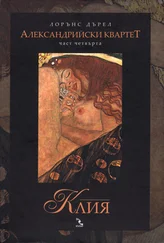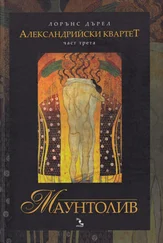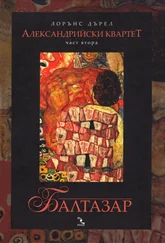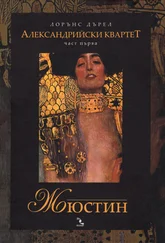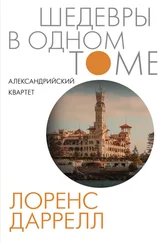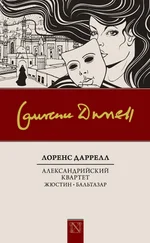Лоренс Даррелл - Prospero's Cell
Здесь есть возможность читать онлайн «Лоренс Даррелл - Prospero's Cell» весь текст электронной книги совершенно бесплатно (целиком полную версию без сокращений). В некоторых случаях можно слушать аудио, скачать через торрент в формате fb2 и присутствует краткое содержание. Жанр: Проза, на английском языке. Описание произведения, (предисловие) а так же отзывы посетителей доступны на портале библиотеки ЛибКат.
- Название:Prospero's Cell
- Автор:
- Жанр:
- Год:неизвестен
- ISBN:нет данных
- Рейтинг книги:4 / 5. Голосов: 2
-
Избранное:Добавить в избранное
- Отзывы:
-
Ваша оценка:
- 80
- 1
- 2
- 3
- 4
- 5
Prospero's Cell: краткое содержание, описание и аннотация
Предлагаем к чтению аннотацию, описание, краткое содержание или предисловие (зависит от того, что написал сам автор книги «Prospero's Cell»). Если вы не нашли необходимую информацию о книге — напишите в комментариях, мы постараемся отыскать её.
Prospero's Cell — читать онлайн бесплатно полную книгу (весь текст) целиком
Ниже представлен текст книги, разбитый по страницам. Система сохранения места последней прочитанной страницы, позволяет с удобством читать онлайн бесплатно книгу «Prospero's Cell», без необходимости каждый раз заново искать на чём Вы остановились. Поставьте закладку, и сможете в любой момент перейти на страницу, на которой закончили чтение.
Интервал:
Закладка:
But the real problem which besets Hadjiavatis is one of power. Why should other people have carriages and servants and not he? Why indeed? echoes Karaghiosis, absently helping himself to some fruit off a fruit-stall.
'I tell you what,' says the hero at last. 'Would you like to be Prime Minister?' Hadjiavatis, despite his innumerable experiences of Karaghiosis' virtuosity in the matter of getting them both into trouble, eagerly agrees. 'Very well, then,' says Karaghiosis, 'have you any money?' It is apparently necessary to organize votes. Hadjiavatis unfortunately has only two drachmae which he is unwise enough to produce. The mulberry eye of the hero takes on a wicked glitter of cupidity and the children (who know quite well that whatever else happens, Hadjiavatis is sure to lose his money) roar with knowing laughter. Karaghiosis makes quite sure that the money is real and then, by one of those fertile and abrupt transitions for which his Hellenic mind is famous, he decides to make them both rich in a very short time. Hadjiavatis, like Doctor Watson, maintains a troubled faith in him while he shows a certain unwillingness to part with the money itself. 'It is simple,' says Karaghiosis, 'We will buy a bottle of wine for one dmchma. We will sell it to the public at a drachma a glass. In that way we shall make considerable profit. With our profit we will buy more bottles of wine and sell them at a drachma a glass. In this way we shall become extremely rich and bribe enough voters to launch a party.' They traverse several celluloid squares, each garish in its manycoloured fretwork frame, and at last the bottle of wine is bought and they take up a station in the street to hawk their wares. Karaghiosis maintains a running fire of mild obscenities to attract the public — raw enough to keep the members of the audience in a roar. Old Father Nicholas is now laughing quite helplessly and unaffectedly, and wiping his eye in his sleeve, while his little grandson is laughing in little suppressed bursts, in order not to miss anything. Meanwhile on the stage things are not going too well. There is an altercation with a policeman; carriages pass; but few customers show any interest in the wine, and at last Karaghiosis says: 'Listen, Hadjiavatis. I have one drachma left over. Let me be the first customer. It is rather hot, and — who knows? — if we open the bottle it might stimulate trade. What do you say?' He pays over the drachma and Hadjiavatis carefully opens the wine and measures out a glass which the hero drinks with a rather over-done enjoyment. Meanwhile, Hadjiavatis himself is feeling the pangs of privation, and feels that he himself would like a glass of wine 'just to take the taste of dust out of his mouth'. The drachma changes hands again. Karaghiosis assures him that so long as the glass of wine is being paid for they need not fear for a profit, and this seems to console both of them — for very shortly Karaghiosis again feels rather faint and buys himself another glass, and Hadjiavatis again follows suit. This is agonizingly funny. Everyone is in a roar except one small spectacled child with a pale face, sitting in the front row, who leans forward and shouts: 'Hey, be careful, you are eating your capital.' A. remark which is greeted with a further burst of laughter. The father of this budding bank manager (himself a clerk in a counting house) leans forward and pats the child's head approvingly.
And now of course the wine is finished, and the two puppets are busy trying to work out their profits. Karaghiosis'great mulberry eye cannot conceal his satisfaction while a certain thickening of his speech indicates that he is now full of a sense of warmth and well-being. From now on the play becomes a surrealist fantasia. Their rise to fame is meteoric and is accomplished by the unblushing cunning of the hero, with Hadjiavatis suffering here and there for his errors of judgement. Almost nothing is too fantastic to present, and I can see from the glowing face of Father Nicholas that what our surrealist friends might call 'the triumph over causality' is considerably older than Breton — and indeed is an integral part of all peasant art. The succession of figures on the dazzling screen glow with a kind of brittle life of their own; the voices (whose volume and pitch betray their human origin) crackle and spark with a kind of suppressed hysteria. All Greece is in this scene; the market-place, the row of Turkish figures, the wonderful power and elasticity of thought and verbal felicity; the tenderness and vulgarity of Karaghiosis; and all indicated with so little of the landscape to which I had hoped to be a guide. Karaghiosis, whose humour is cast in a townsman's mould, is still surrounded by memories of the day when he and his kind were mad, violent clansmen in the hills around Olympus: or scattered colonies across the Black Sea, still tenaciously holding to an optative mood and a pronunciation which Piraeus has forgotten or only remembers as a joke. On this little dazzling screen you have the whole laic mystery of Greece which has been so long dormant in the mountains and islands — in the groves and valleys of the archipelago. You have the spirit and the unconquerable adaptability of the Greek who has penetrated with the leaven of his mercuric irony and humour into every quarter of the globe.
By now we have met a number of characters who are to become familiar in the immortal Karaghiosis cycle of plays. There is Gnio-Gnio, a lunatic figure in a top hat and cutaway coat, whose singing Zante accent is a joy to listen to. There are the Salonika Jews, each tiny and clad in a shapeless sack-like robe, out of which they speak shrill and clever, hands firmly folded in front of them. There is even an unusual figure called 'The Lord' who is dressed in what Father Nicholas must imagine to be the conventional English fashion — in a tail-coat, buttonhole, spats, and a topper. There is also the appalling Stavrakas of Piraeus whose vanity and vulgarity make him justly the object of little children's derision. There is the Grand Vizier, a most sympathetic figure, and of imposing size — not to mention the Cadi, who orders beatings with a cool impersonal air of detachment.
The drama reaches its peak with a faked election, in which Karaghiosis, in order to win, manages to resurrect all the corpses in the local cemeteries, who pass in a grisly single-file across the stage to the polling booth to vote for the hero.
And now, with abrupt suddenness Karaghiosis appears to recite a short epilogue and while the applause is still deafening us, the screen goes out and we are in darkness. The orchestra has long since packed up, and we stumble yawning from the garden in the darkness, pressed all about by the eager bodies of the children. The warm sign of 'The Partridge' welcomes us and the company is enriched to-night by the seldom presence of Nimiec, who has tales to tell about the caves off the north end of the Saint Angelo cape. He has just spent a week with the fishermen there trying to catch a shark. Zarian is in form too. His memory has been strengthened and awakened by Karaghiosis, and he has stories about Georgia and the Caucasus dancers which will last well into the night. Only Theodore, whose constancy in erudition is the marvel and envy of all of us, has succumbed to the lure of documentation and is writing a few notes on the back of the menu, which must be incorporated in the book. There is some fresh squid, smoking hot with green vegetables, and some Spartila wine to whet the appetites of our imaginations; and to round it all off, the three puppet-players drop in to the tavern for a glass of wine. The leader is a sharp-featured young man, whose sallow boredom of expression conceals his gifts of mimicry and satire; his helpers are both small and podgy and nondescript of feature. All three are clad in cheap suits and felt hats. Invited to a glass of wine they sit awkwardly among so many 'foreigners' and answer questions with pleasure; I think they distrust our interest in the shadow-play; there is the faint Greek suspicion at the back of their minds that they are the victims of a misplaced politeness; also why the bearded professorial gentleman should be writing details about Karaghiosis on the back of a menu is rather a mystery. But Theodore's charming mildness and the convivial bacchic warmth of Zarian soon thaws their shyness. Also the blind fiddler's son has begun his acrid tunes on the violin, standing by the chair of his father — and under cover of the music and the clink of glasses con fidences are easier. They come from Patras. Every year in the autumn they play up as far as Preveza, and then come across the straits to tour Corcyra, Cephalonia and Zante. One of them has a couple of the Karaghiosis chap-books in his pocket, and, turning from the garish cover (which shows the hero engaged in ferocious argument with the Vizier) I happen upon a list of some hundred titles of plays which deal with the adventures of this latest addition to the Greek Pantheon. 'Karaghiosis the Architect', 'Karaghiosis the Martyr of Virtue', 'Karaghiosis the Archaeologist', 'Karaghiosis in Love', 'Karaghiosis the Financier'.
Читать дальшеИнтервал:
Закладка:
Похожие книги на «Prospero's Cell»
Представляем Вашему вниманию похожие книги на «Prospero's Cell» списком для выбора. Мы отобрали схожую по названию и смыслу литературу в надежде предоставить читателям больше вариантов отыскать новые, интересные, ещё непрочитанные произведения.
Обсуждение, отзывы о книге «Prospero's Cell» и просто собственные мнения читателей. Оставьте ваши комментарии, напишите, что Вы думаете о произведении, его смысле или главных героях. Укажите что конкретно понравилось, а что нет, и почему Вы так считаете.


